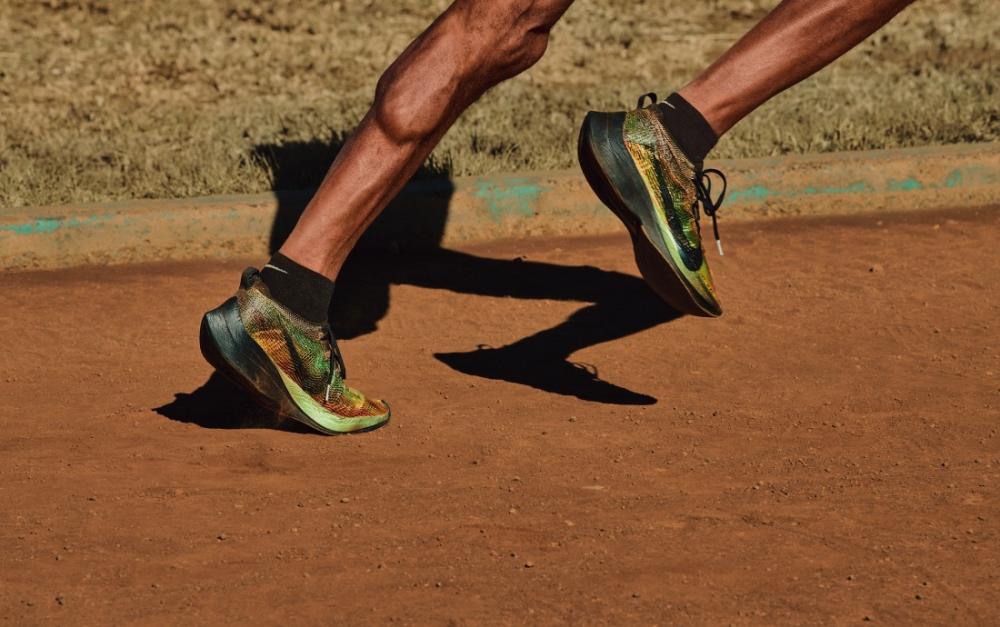You might have heard the terms slow flood and slow fashion without fully understanding their context. One can argue that both movements have emerged from a wish to counter fast food and fast fashion. Regardless of your motive or interest in the matter, we’d like to share what is at stake and how your purchases can positively affect the industry.
Concretely, Etiko’s vegan footwear and Allbird’s innovative fabrics are both ambassadors of what sustainable workout shoes should look like. If you are looking for more trustworthy brands worldwide, Puratium’s article on the matter will help you decipher their pros and cons.
This article will first shed light on the human and environmental costs behind fast fashion. Then, we will give you practical examples on what you can do to reach more sustainability in your footwear choices.
Why slow, sustainable fashion?
Harm done to nature & wildlife
While some shoes are being upcycled or sold on second-hand markets, most shoes end up in landfills, taking hundreds of years to decompose. During decomposition, a potent gas known as methane is released into the atmosphere. Considering its ability to trap heat in the atmosphere, methane contributes to climate change.
Moreover, the presence of synthetic fibers made from petroleum, such as nylon or polyester, poses a threat to marine life: washing these clothes releases microplastics in our waterways. Thus, (micro)plastics in the oceans are not only a source of pollution, it also kills marine life that ingests them.
Lastly, did you know that the fashion industry, with its intensive shipping and manufacturing practices, is responsible for 10% of the annual global carbon emissions, thus higher than international flights and marine shipping combined?
Unfair wages and unsafe working conditions
One can wonder about the reality behind the scenes of low-cost shoes. Well, you get what you pay for: low-quality materials and footwear being massed produced by underpaid workers in countries where working conditions are poorly regulated.
Hazardous factories where toxic chemicals and the lack of safety measures are the rule rather than the exception in the fast fashion industry. And let’s not even try to understand the situation in sweatshops, where children endure heavy abuse.
Even though these practices allow retailers to sell multiple collections a year at an unbeatable price, they maintain a unfair system profitable – and hence well alive.
Un-friendly materials
Among the most fabrics used in fast fashion, including in footwear, we can cite virgin plastic or cotton-based materials. While the damage done with the first fabric category was previously described, cotton does not stand out as a better candidate. Conventional cotton is one of the most water-intensive crops in the world and with high levels of pesticides involved.
Moreover, rubber and leather are also widely used in the shoe industry. While both appear as more ‘natural,’ they come with questionable processes.
For example, aside from the controversy regarding animal welfare, conventional leather tanning entails using harmful chemicals hence causing a direct hazard to both the environment and the workers involved. As for the rubber, it is not necessarily sourced from sustainably managed forests. Deforestation and biodiversity loss are one of the many side effects coming with these unfriendly materials.
How can you find eco-friendly workout sneakers?
Even though the above paragraphs might sound like an impossible situation to solve, there are steps that you take in your shopping habits that will contribute to a greater good: even if millions of us do it even partially, the change towards slow and ethical fashion can truly happen.
If you are looking to reduce your environmental impact significantly, the first action you can take is to maintain and repair your current sneakers to make them last as long as possible.
In the same vein, buying second-hand whenever you can is another step in the right direction. All the above solutions come with the benefits of reducing your yearly fashion budget.
Moreover, make sure to dispose of your old sneakers properly: for example, donate them to amazing organizations like Soles4Souls.
Lastly, even though we are not blaming anyone for their habits, we can only encourage you to break the dependency on fast fashion. By buying less and better, you distance yourself from overconsumption which contributes to the very existence of fast fashion.
Thus, as a last resort, buy new sneakers from ethical and sustainable brands that meet most of the below criteria. As it might not be easy for non-fashion experts to determine the below features, we encourage you to search for a brand’s sustainability score through the GoodOnYou App.
- Earth-friendly materials: Experts tend to agree that today, whether for shoes or clothes, organic plant-based fabrics (cotton, linen, hemp), recycled materials (recycled PET, recycled cotton), and innovative yarns (Tencel, Piñatex) are the best options for the planet. On the other hand, synthetic fibers such as conventional nylon and polyester should be on your no-go list.
- Transparent and ethical manufacturing practices: is the factory they operate from being regularly audited? Do they ensure safe working conditions and fair wages? Are they sourcing locally, trying to stick to small batches and versatile, timeless collections? Can they provide traceability for all raw materials? If you have any doubt the brand operates with sweatshops (often involving child labor), or if you see it launches dozens of collections a year, we can only encourage you to boycott it.
- Environmental efforts such as efficient waste reduction (design patterns, low waste packaging, recycling programs, etc.), carbon footprint offsets, or donations to grassroots organizations.
- Brands defending equal rights and slow, clean beauty, thus embracing diversity and inclusion in their campaigns. Body positivity plays a part in our fashion revolution.
Final thoughts
If the demand for fast fashion decreases, so will the production eventually. And by choosing slow, sustainable fashion and sneakers, in particular, we are voting for an industry more respectful of nature and its living creatures.
The road to ethical and sustainable fashion across the globe is a tumultuous one; however, it is one that we can all choose to take by taking small steps in the right direction. We can only hope for the industry to continue its transition, thus taking responsibility and reinventing itself.






























